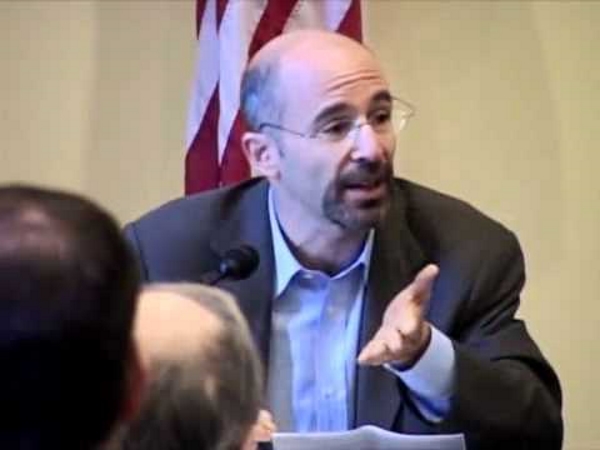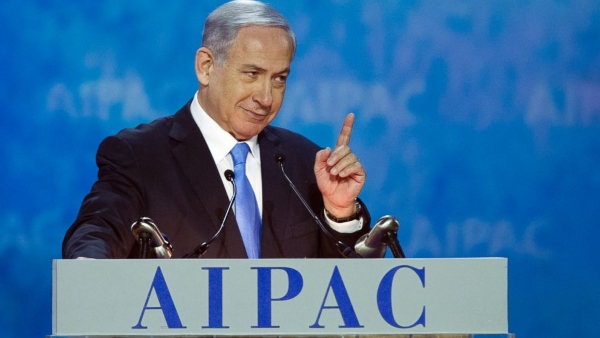Supporters of the Obama Administration, like Eric Yoffie of the the Union for Reform Judaism, pretend to be angered and offended by the “wildly inappropriate” action of PM Netanyahu in accepting the invitation of the Speaker of the House to address Congress. They insist that protocol was broken, that the speech was a an attack on the President and that Netanyahu didn’t offer an alternative to Obama’s policy. And they view the speech as unwanted interference in American partisan politics.
All of these complaints are false, and one can only assume that, like their president, they didn’t bother to listen to the speech. But the part about “interference” makes me laugh. There is simply no comparison. The US and Europe have been meddling in Israel’s affairs for years, and have recently taken it to a new level. And they don’t do it openly, by making speeches (indeed, Obama declined to speak to Israel’s Knesset in 2013, possibly because it would constitute recognition that Jerusalem is our capital).
As we approach our March 17 election, the flow of foreign money into groups trying to defeat PM Netanyahu continues unabated. The V15 organization is assiduously working to get out the anti-Netanyahu vote, in the cities and Arab towns. And they are not the only foreign-backed organization trying to influence the election against the PM. The Likud made a complaint to the Election Commission against V15, but unfortunately they shot from the hip and failed to establish a direct connection between V15 and the PM’s electoral opponents.
This is nothing new. For years, the EU, individual European governments and the US-based New Israel Fund (NIF) have been funding non-governmental organizations in Israel which work against the interests of the state to the tune of millions of dollars. These NGOs provided the raw material for the libelous accusations of war crimes against Israel made by the UN Human Rights Commission in the tendentious Goldstone Report about the 2008-9 Gaza War (since repudiated by the jurist whose name it bears) and the forthcoming Schabas Report about the more recent 2014 conflict.
The NGOs include some that engage in “lawfare” against Israel, including legal attacks against IDF soldiers and commanders; others that support boycott-divestment-sanctions (BDS); some that generate propaganda to demonize the state and the IDF; and some that engage in protests and vandalism in the territories.
It has recently been made public that the NIF received grants of more than $1 million from the US State Department during the first Obama Administration. The NIF supports hundreds of projects in Israel, ranging from relatively harmless ones like groups favoring ‘religious pluralism’ to Israeli Arab organizations that want to change Israel from a Jewish state to a binational state, to supporters of BDS and anti-IDF troupes that travel the world accusing it of war crimes.
But doesn’t Israel ‘meddle’ with US politics through the so-called ‘Israel Lobby’, in particular AIPAC?
Actually, no. AIPAC is an American organization, funded by pro-Israel Americans. Whatever influence it has comes directly from the fact that most Americans do support Israel, and members of Congress know this. Contrast this with Arab lobbies that recycle petrodollars to try to influence lawmakers, often in favor of policies that their constituents oppose.
Well, they say, what about the nefarious Sheldon Adelson?
Adelson has given millions to the Birthright program, which brings young Jewish Americans to Israel for ten days to see the country with their own eyes. But he also is the major investor in the Israel Hayom Newspaper, which infuriates the Left. So let’s look at Israel Hayom.
The argument is that since it is given away free, it isn’t a ‘real’ newspaper but just propaganda. But all newspapers make most of their profit, if any, from the sale of advertising. And Israel Hayom has plenty of ads. Free distribution of a newspaper to maximize circulation — Israel Hayom now competes closely with Yediot Aharonot for the largest circulation of any Israeli newspaper — is a legitimate business strategy.
Adelson doesn’t hide his ownership, and Israel Hayom is the only major newspaper that supports PM Netanyahu (Yediot and Ha’aretz in particular are vehemently, even viciously, opposed to him). As the Election Commission and Supreme Court recently decided when they turned down a complaint against Israel Hayom from Netanyahu’s opponents, a newspaper is entitled to an agenda — indeed it is impossible to imagine one without a point of view.
I don’t (obviously) have a problem with Israel Hayom. I read it every day. Indeed, Adelson, a private individual, is doing Israel a great service by providing a vehicle for the presentation of a centrist point of view, when other newspapers and TV and radio channels are all biased to the left to a greater or lesser extent.
But I do have a problem with the US and European governments meddling in Israel’s politics and attempting to influence its elections to change our government to one which will be more compliant to their interests — interests which often oppose the continued existence of Israel as a Jewish state.
The left-wing politicians that think that they can accept the aid of these governments and still maintain their independence are fooling themselves. There will be a day when the US and Europe will call in their chips (Kerry has already said that he will push for an agreement with the Palestinians after the election). You don’t make a deal with the devil and ask for your soul back.
Hands off my country!





